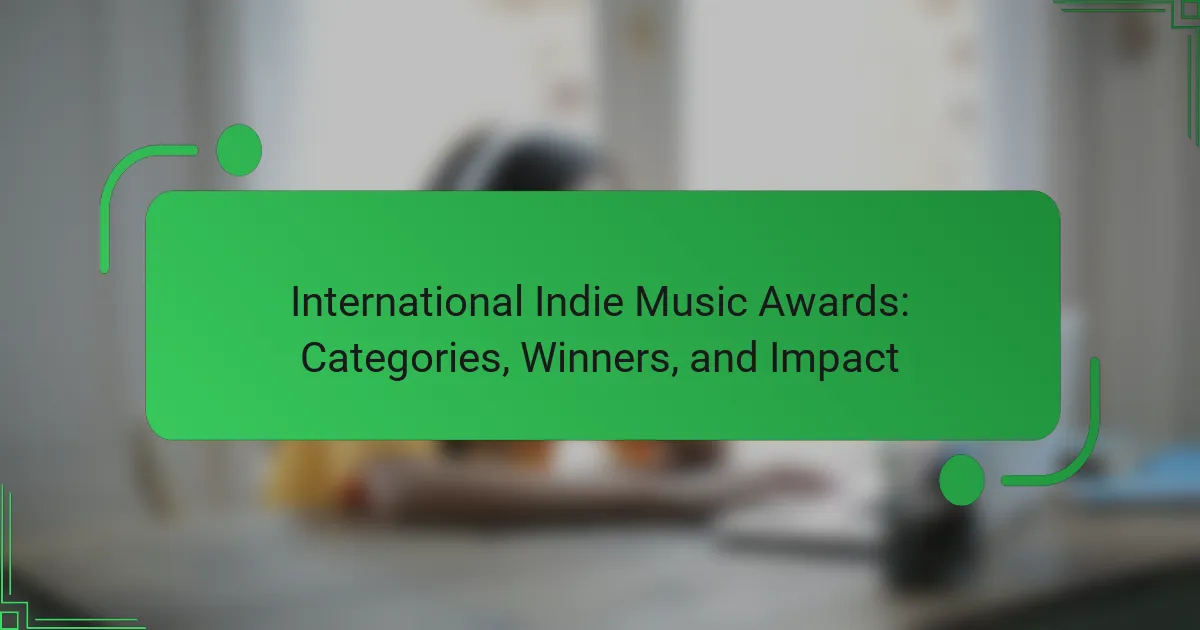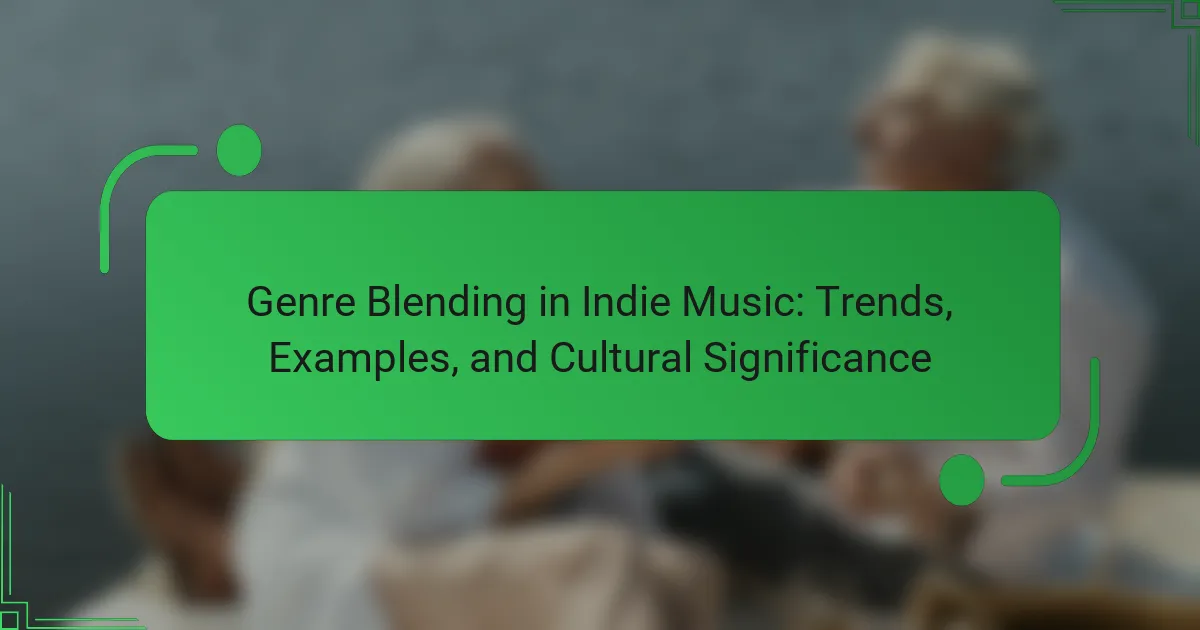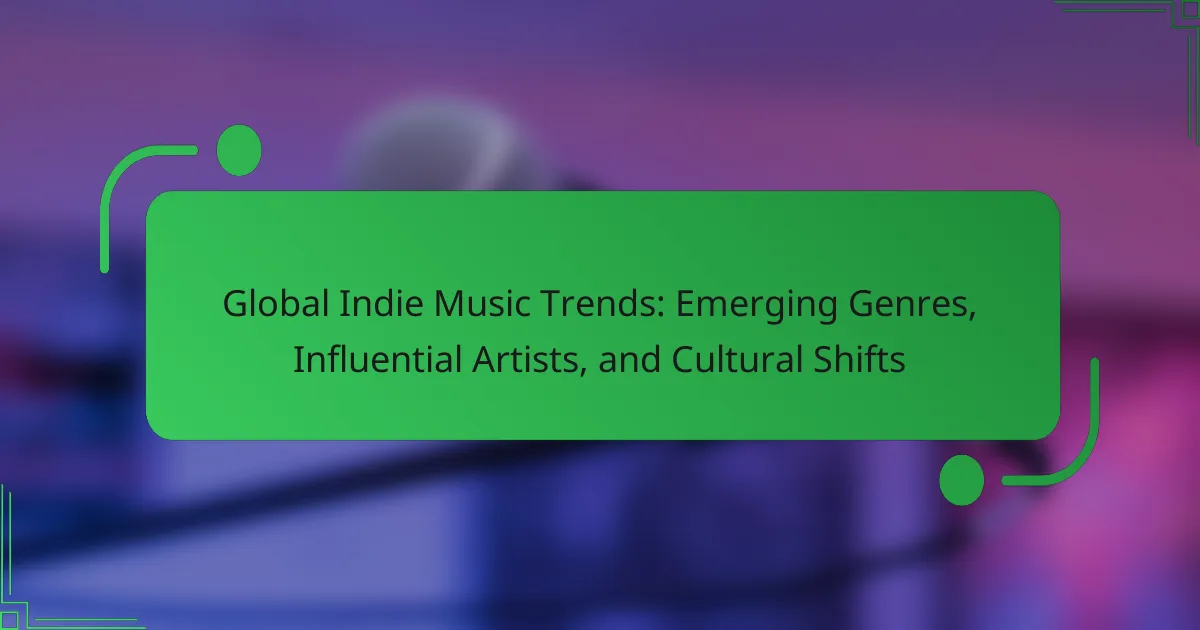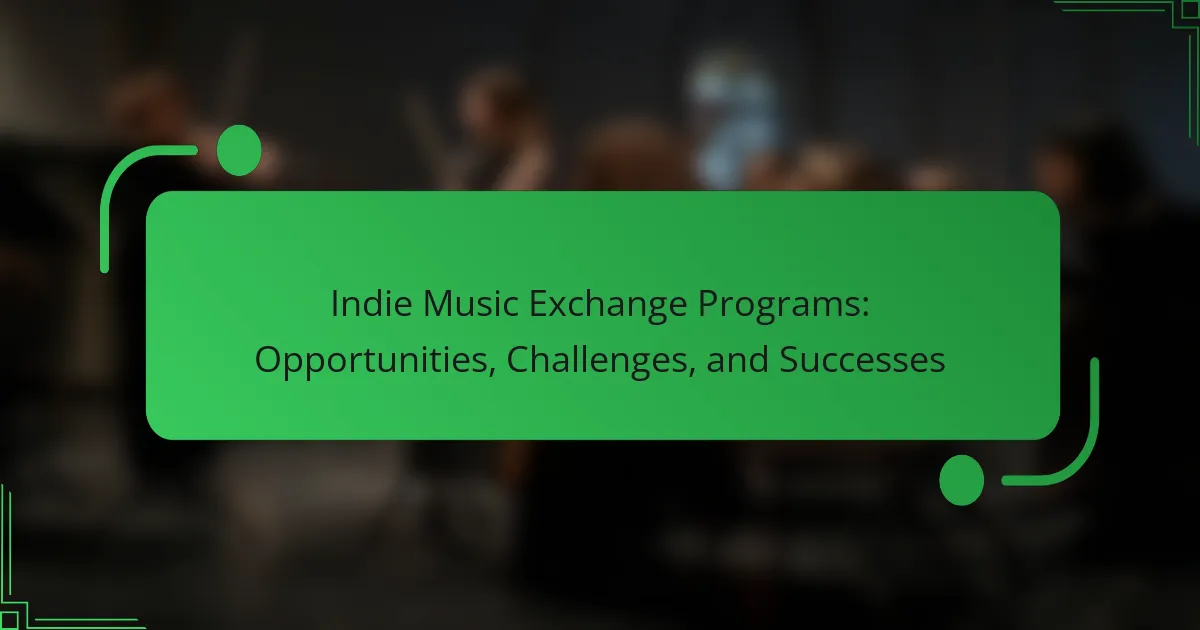Online platforms for indie music collaborations enhance creativity and connectivity for independent musicians. They feature user-friendly interfaces, collaborative tools, and genre-specific communities. These platforms provide monetization options and integrated communication systems for real-time feedback. User experiences highlight both the benefits of accessibility and the challenges of effective collaboration.
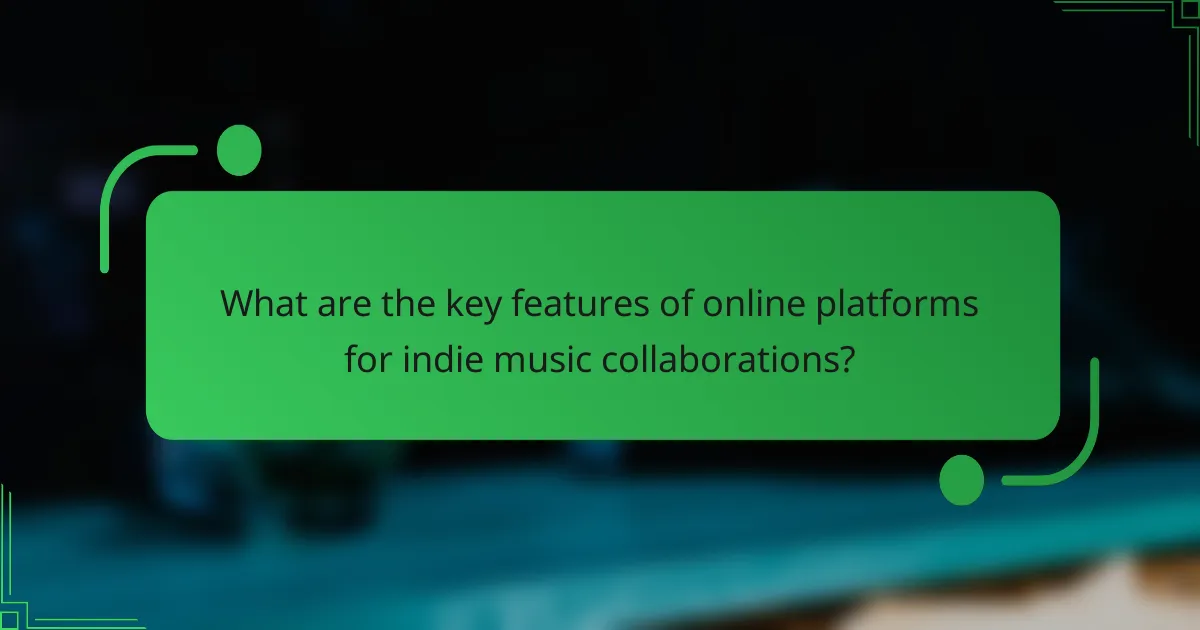
What are the key features of online platforms for indie music collaborations?
Online platforms for indie music collaborations offer features that enhance creativity, connectivity, and project management. Key features include user-friendly interfaces, collaborative tools, genre-specific communities, and resource-sharing options. These platforms often provide integrated communication systems, allowing real-time feedback and brainstorming. Additionally, they may offer monetization options, enabling artists to earn from their collaborations. User experiences highlight the importance of accessibility and support, fostering a vibrant ecosystem for independent musicians.
How do collaboration tools enhance the creative process?
Collaboration tools significantly enhance the creative process by facilitating communication and idea sharing among artists. These platforms offer features like real-time editing, file sharing, and integrated feedback systems, which streamline collaboration. As a result, users can co-create music more efficiently, leading to innovative outcomes. For instance, platforms often include features that allow for seamless integration of various media, fostering a more dynamic creative environment. Additionally, user experiences highlight the value of these tools in breaking geographical barriers, enabling collaborations across different locations and cultures.
Which communication features are most effective for musicians?
Effective communication features for musicians include real-time collaboration tools, file sharing, and integrated messaging systems. These features enhance creativity and streamline workflows. Platforms like Soundtrap and BandLab offer seamless interaction, enabling musicians to collaborate regardless of location. User experiences highlight the importance of intuitive interfaces and responsive support, which foster productive partnerships.
What file sharing options do these platforms provide?
Online platforms for indie music collaborations offer various file sharing options. These include cloud storage integration, direct file uploads, and collaborative workspaces that support real-time editing. Users can share audio files, project files, and multimedia assets seamlessly, enhancing collaboration efficiency. Platforms like Soundtrap and BandLab provide unique features such as version control and project history tracking, ensuring that all collaborators stay aligned throughout the creative process.
How do integration capabilities with other software impact usability?
Integration capabilities with other software significantly enhance usability by streamlining workflows. When online platforms for indie music collaborations integrate with tools like DAWs or project management software, users experience improved efficiency. This integration allows seamless file sharing, real-time collaboration, and better organization of projects. As a result, artists can focus more on creativity rather than navigating multiple applications. Enhanced integration features can also attract more users, leading to a more vibrant community and richer collaborative experiences.
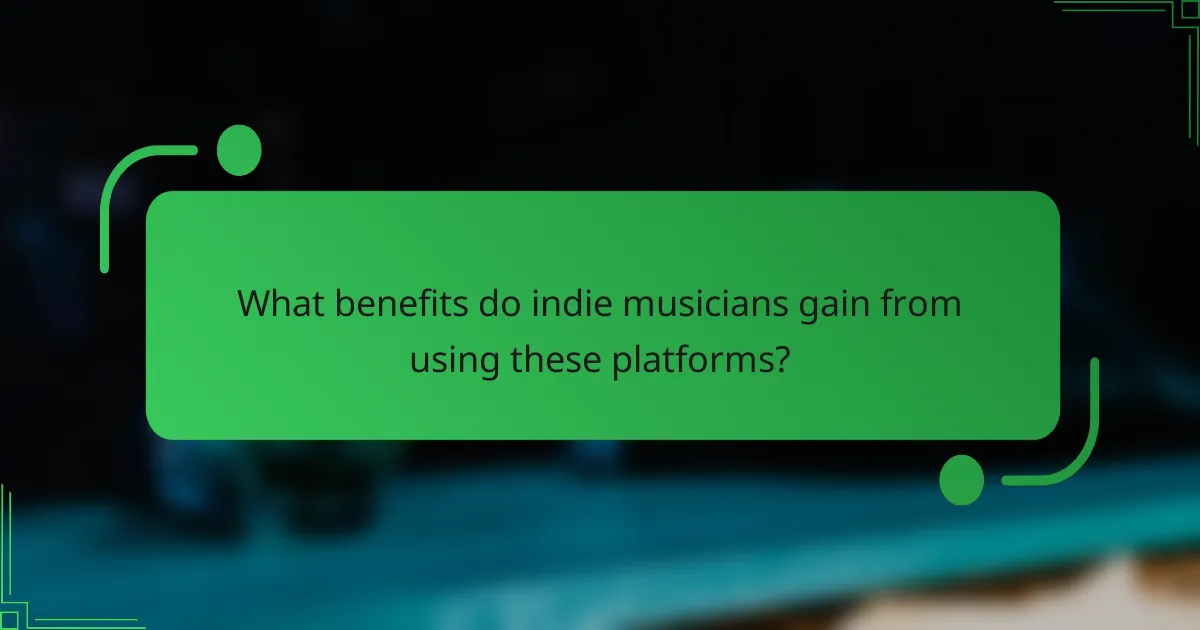
What benefits do indie musicians gain from using these platforms?
Indie musicians gain exposure, collaboration opportunities, and access to diverse audiences through online platforms. These platforms facilitate networking with other artists and industry professionals, enhancing creative partnerships. They also provide tools for marketing and distribution, increasing visibility and potential revenue. Additionally, user-friendly interfaces allow artists to manage their work efficiently, fostering independence in their careers.
How do online collaborations expand networking opportunities?
Online collaborations significantly enhance networking opportunities by connecting indie musicians with diverse talents. These platforms facilitate collaboration across geographical boundaries, allowing artists to find and collaborate with others who share their musical vision.
Online platforms often feature tools for sharing music, feedback, and resources, which fosters community engagement. Musicians can discover unique styles and techniques from peers, enriching their own artistry. Additionally, collaborations can lead to joint promotions, expanding reach and audience engagement.
User experiences indicate that these collaborations often result in increased visibility and career growth. Artists report gaining followers and industry connections through collaborative projects. Overall, online collaborations serve as a vital resource for indie musicians seeking to expand their networks.
What cost savings can musicians expect from using digital platforms?
Musicians can expect significant cost savings from using digital platforms. These platforms reduce expenses related to studio time, production, and distribution. For instance, online collaboration tools eliminate travel costs and allow remote recording sessions. Additionally, many platforms offer free or low-cost access to high-quality production software, further decreasing overall expenses. By leveraging these digital resources, indie musicians can allocate more budget towards marketing and promotion, enhancing their visibility and reach.
How can these platforms enhance exposure and audience reach?
Online platforms for indie music collaborations enhance exposure and audience reach by providing access to diverse networks. These platforms connect artists with fans and industry professionals, increasing visibility. Features like social sharing, collaborative tools, and analytics help track engagement and tailor outreach strategies. As a result, indie musicians can build larger audiences and foster meaningful connections.
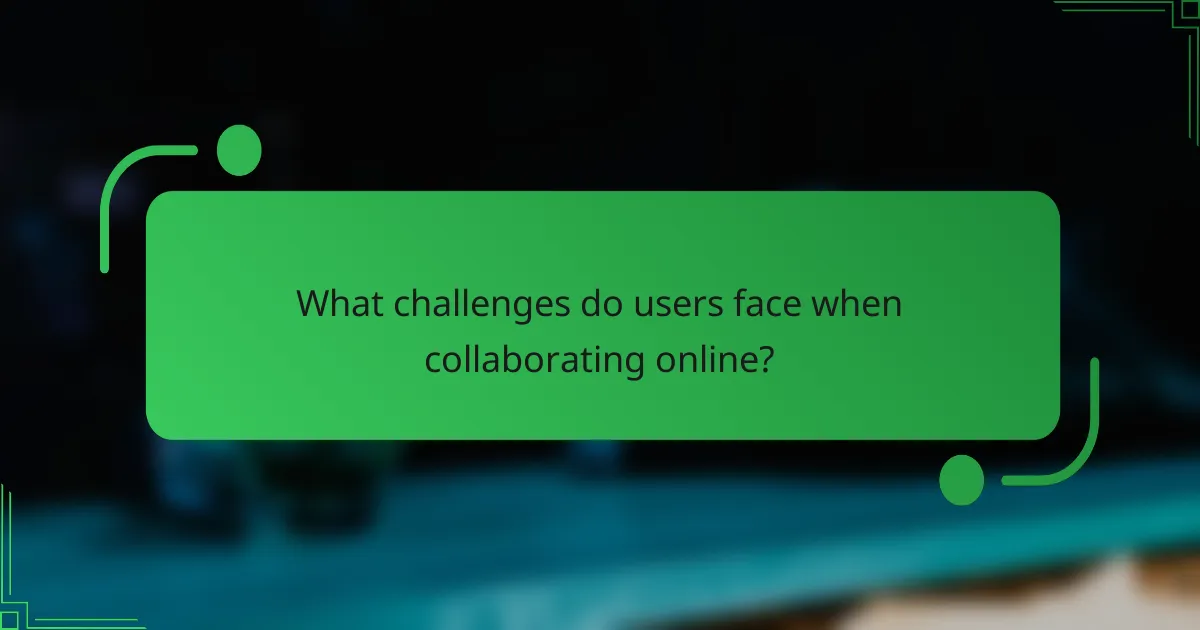
What challenges do users face when collaborating online?
Users face several challenges when collaborating online, including communication barriers, technical difficulties, and differing creative visions. Effective collaboration requires clear communication, which can be hindered by language differences or misinterpretations. Technical issues, such as platform reliability and connectivity, can disrupt workflow. Additionally, varying expectations and artistic differences among collaborators can lead to conflicts, affecting the project’s success. Addressing these challenges is crucial for enhancing user experiences on online platforms for indie music collaborations.
Which technical issues are most commonly reported by users?
Users commonly report issues such as connectivity problems, audio quality concerns, and difficulties with user interface navigation on online platforms for indie music collaborations. These technical challenges can hinder collaboration efficiency and user satisfaction. Connectivity issues often arise from unstable internet connections, while audio quality concerns include latency and distortion. User interface navigation problems may stem from complex layouts or unclear instructions, impacting overall user experience.
What are the potential pitfalls of remote collaboration?
Remote collaboration can lead to communication issues, technology challenges, and varying work styles. Misunderstandings may arise due to lack of face-to-face interaction. Technical difficulties can hinder progress, especially with unreliable internet connections or unfamiliar software. Additionally, differing time zones can complicate scheduling and response times. These pitfalls can impact the overall effectiveness of online platforms for indie music collaborations.
How do cultural differences affect collaboration dynamics?
Cultural differences significantly impact collaboration dynamics on online platforms for indie music. They influence communication styles, decision-making processes, and conflict resolution methods. For example, collectivist cultures may prioritize group consensus, while individualistic cultures might favor personal expression. Understanding these dynamics fosters more effective collaboration, enhancing user experiences and project outcomes.
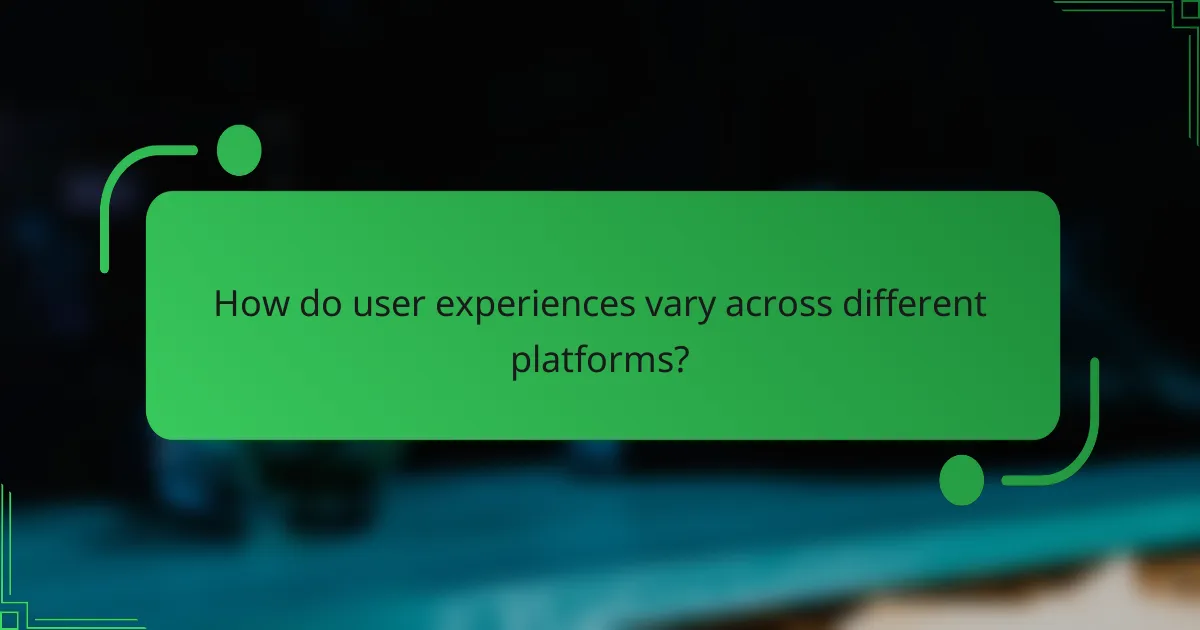
How do user experiences vary across different platforms?
User experiences on online platforms for indie music collaborations vary significantly based on features and user interface. Some platforms emphasize ease of use, while others prioritize advanced collaboration tools.
For example, platforms like BandLab offer real-time collaboration features, enhancing user interaction. In contrast, Soundtrap focuses on a user-friendly interface, making it accessible for beginners.
Additionally, unique attributes such as integrated social networking on platforms like Splice foster community engagement. Meanwhile, rare attributes like exclusive licensing options on platforms like DistroKid cater to niche needs.
Overall, the choice of platform greatly influences the quality and nature of user experiences in indie music collaborations.
What are the most popular platforms among indie musicians?
The most popular platforms among indie musicians include Bandcamp, SoundCloud, DistroKid, and ReverbNation. These platforms offer unique features that facilitate music distribution, collaboration, and audience engagement.
Bandcamp allows artists to sell music directly to fans, fostering a strong community connection. SoundCloud focuses on sharing audio tracks and has a robust social networking aspect for collaboration. DistroKid simplifies music distribution across major streaming services, making it accessible for indie artists. ReverbNation provides tools for promotion and fan engagement, enhancing visibility in the music industry.
Each platform has distinct benefits tailored to the diverse needs of indie musicians, enabling them to thrive in a competitive landscape.
How does user interface design influence collaboration satisfaction?
User interface design significantly enhances collaboration satisfaction by facilitating seamless communication and intuitive navigation. Features like real-time editing and user-friendly layouts promote engagement among indie musicians. A well-designed interface reduces frustration, allowing users to focus on creativity rather than technical difficulties. Moreover, feedback mechanisms within the design can provide valuable insights into user experiences, fostering a collaborative environment.
What feedback do users have regarding platform reliability?
Users generally report high satisfaction with platform reliability for indie music collaborations. Many appreciate consistent uptime and stable connections, which enhance their creative processes. Feedback highlights that platforms like Soundtrap and BandLab often have minimal downtime, allowing seamless collaboration. Users also note that responsive customer support contributes to their positive experiences, addressing issues promptly when they arise. Overall, reliability is a key factor influencing user loyalty and ongoing engagement with these platforms.
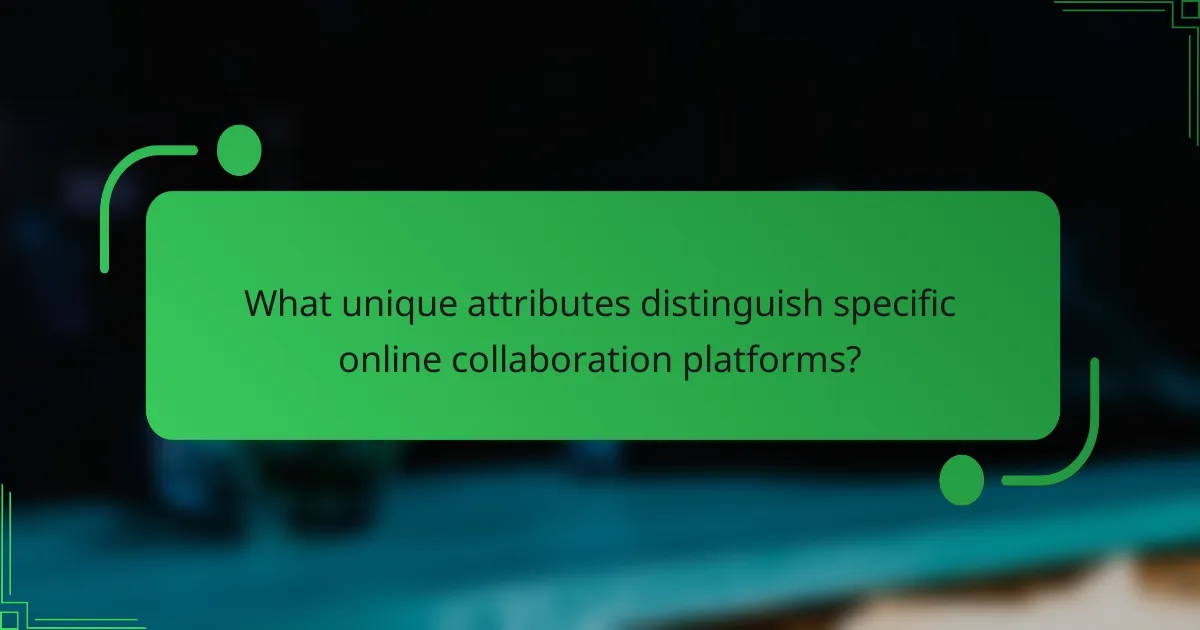
What unique attributes distinguish specific online collaboration platforms?
Unique attributes of online collaboration platforms for indie music include integrated tools for real-time editing, diverse file-sharing options, and community-driven feedback systems. These features enhance creativity and streamline workflows among musicians. For instance, platforms like Soundtrap offer built-in recording capabilities, while BandLab emphasizes social interaction through user-generated content. Additionally, some platforms provide advanced analytics to track engagement, a rare attribute that helps artists refine their collaborations.
Which platforms offer exclusive tools for genre-specific collaborations?
Platforms like Splice, BandLab, and Soundtrap offer exclusive tools for genre-specific collaborations. These platforms provide features tailored to various music styles, enhancing the collaborative experience.
Splice offers a vast library of samples and loops, allowing users to explore multiple genres. BandLab includes real-time collaboration tools, enabling musicians to work together seamlessly regardless of location. Soundtrap features genre-specific templates and instruments that cater to different musical tastes.
Each platform fosters unique user experiences through community engagement and feedback mechanisms. These tools help indie musicians connect and create more effectively within their preferred genres.
How do pricing models vary between platforms?
Pricing models for online platforms for indie music collaborations vary significantly based on features and user experiences. Some platforms charge subscription fees, while others may take a percentage of earnings or offer tiered pricing based on usage.
| Platform | Pricing Model | Key Features | User Experience |
|——————|————————-|———————————–|—————————-|
| Platform A | Monthly subscription | Unlimited collaborations | Positive |
| Platform B | Commission-based | Pay-per-use options | Mixed |
| Platform C | Tiered pricing | Different levels of features | Generally favorable |
| Platform D | Free with premium options | Basic access with optional upgrades| Mostly positive |
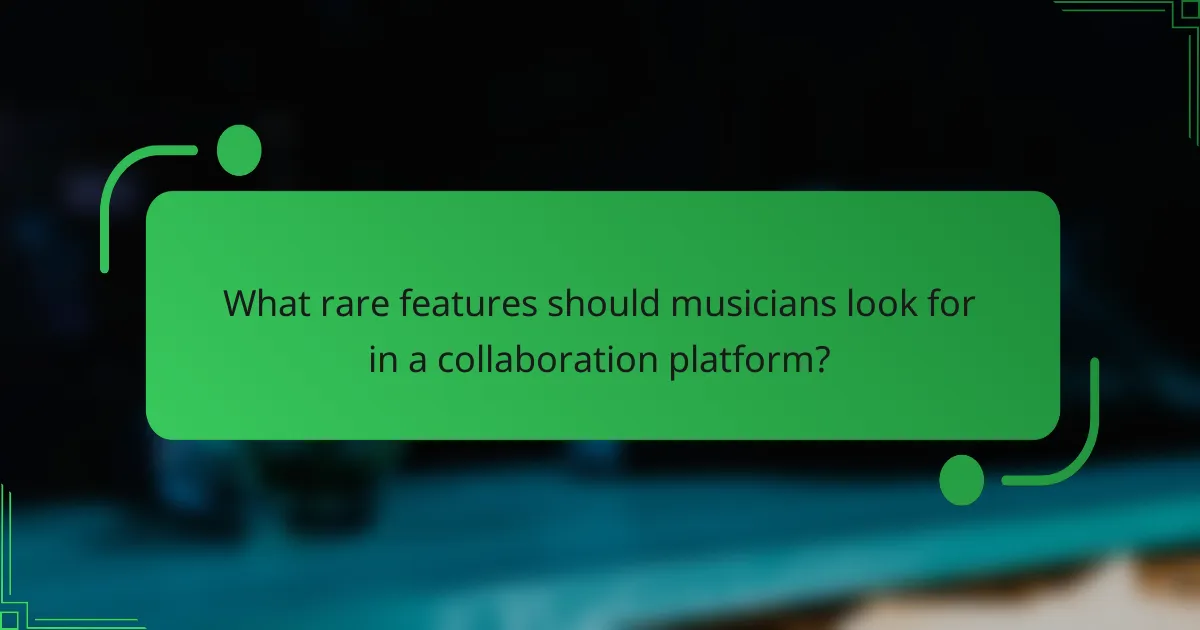
What rare features should musicians look for in a collaboration platform?
Musicians should seek collaboration platforms that offer unique features like integrated AI tools for music analysis, customizable project management dashboards, and advanced networking capabilities with industry professionals. These elements enhance creativity and streamline the collaboration process. Additionally, platforms that provide real-time feedback mechanisms and a marketplace for services can significantly improve the user experience.
Which platforms provide unique promotional opportunities for artists?
Several online platforms provide unique promotional opportunities for artists. These include Bandcamp, SoundCloud, and DistroKid, each offering distinct features that cater to indie musicians.
Bandcamp allows artists to sell music directly to fans, fostering a personal connection. SoundCloud offers extensive networking and sharing capabilities, helping artists reach wider audiences. DistroKid simplifies music distribution across various streaming services, enhancing visibility.
These platforms empower artists with tools to promote their work effectively, ensuring they can engage with fans and expand their reach.
How do some platforms incorporate AI to enhance collaboration?
Online platforms enhance collaboration through AI by providing tools that streamline communication and facilitate creative processes. These platforms often utilize AI-driven features like automated feedback, smart suggestions for music arrangements, and real-time collaboration tools. For instance, AI can analyze user-generated content to recommend potential collaborators based on style and genre preferences. Such features significantly improve user experiences by making the collaboration process more efficient and tailored to individual needs.
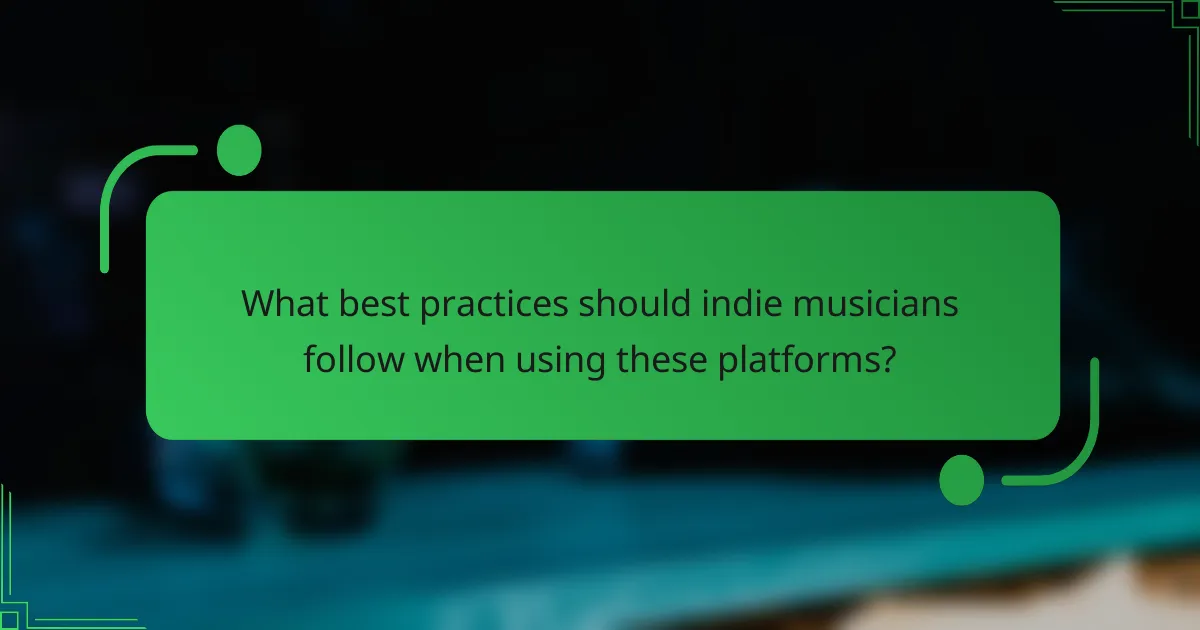
What best practices should indie musicians follow when using these platforms?
Indie musicians should prioritize authenticity, collaboration, and engagement when using online platforms. Building genuine connections with other artists and fans enhances opportunities for collaboration and growth. Regularly share new music and updates to maintain audience interest. Utilize platform features effectively, such as playlists and social sharing, to maximize reach. Engage with feedback and adapt to audience preferences to improve user experiences.
How can musicians effectively manage their time during collaborations?
Musicians can effectively manage their time during collaborations by utilizing online platforms designed for indie music. These platforms offer features like project management tools, integrated communication systems, and file-sharing capabilities, which streamline collaboration.
By setting clear deadlines and utilizing task lists, musicians can prioritize their contributions. Regular check-ins through video or audio calls can enhance accountability and foster creativity. Additionally, platforms that allow real-time editing and feedback enable faster decision-making and reduce delays.
User experiences highlight that effective time management leads to more productive collaborations and higher-quality music output. Adopting these strategies can significantly enhance the collaborative process for musicians.
What strategies can enhance communication and workflow?
Utilizing online platforms for indie music collaborations enhances communication and workflow through various strategies. These platforms offer real-time collaboration tools, enabling seamless sharing of ideas and files. Features like integrated messaging and video calls foster direct communication among artists. Moreover, project management tools help track progress and deadlines, ensuring organized workflows. User experiences indicate that platforms with user-friendly interfaces significantly improve collaboration efficiency.
How should artists approach feedback and revisions in a collaborative setting?
Artists should approach feedback and revisions with an open mind and clear communication. Utilizing online platforms for indie music collaborations enhances this process by offering tools for real-time feedback and version control.
Establishing a collaborative atmosphere is crucial. Artists can share initial drafts, receive constructive criticism, and make necessary revisions. Features like commenting, tagging, and chat functions on platforms facilitate this exchange.
Balancing creative input is essential. Artists should prioritize feedback that aligns with their vision while remaining receptive to suggestions that enhance the work.
User experiences indicate that platforms with robust features improve collaboration efficiency. Artists report increased satisfaction when using tools that streamline feedback and revisions, ultimately leading to a more polished final product.
